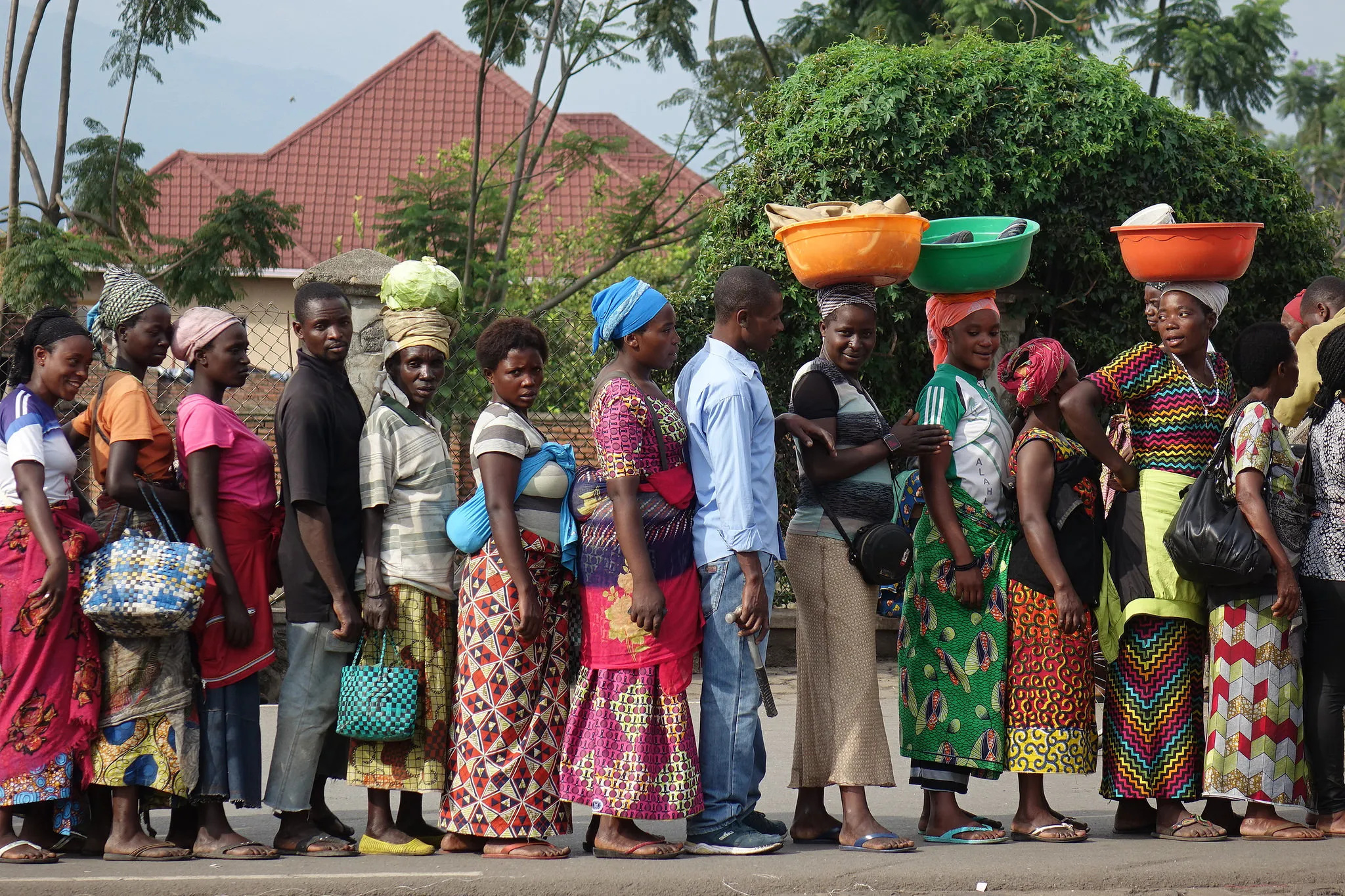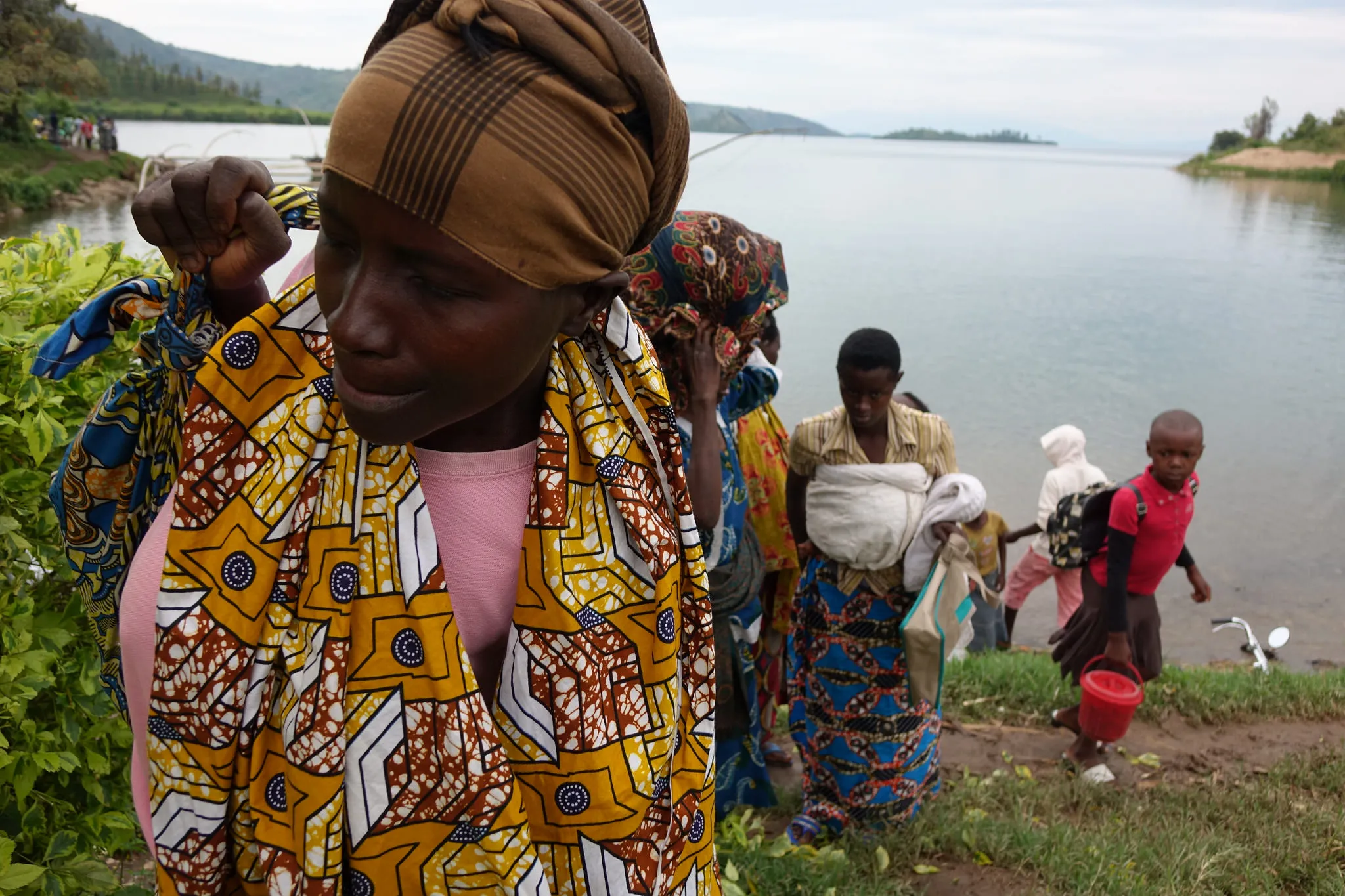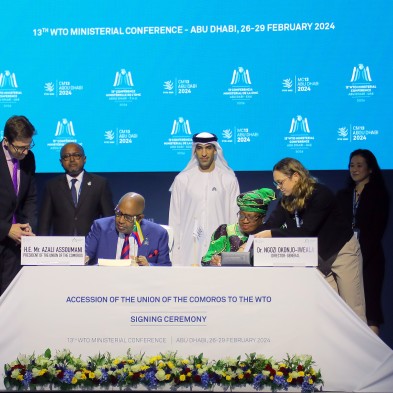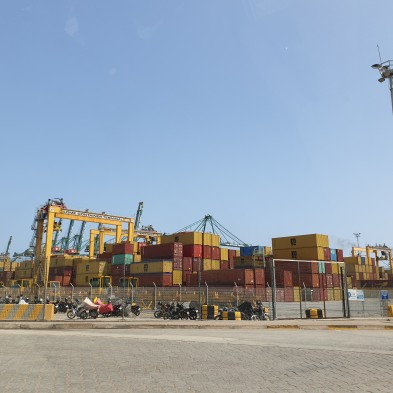
Le CIR a travaillé avec le gouvernement rwandais pour faire en sorte que les priorités commerciales soient intégrées dans la Stratégie de développement économique et de réduction de la pauvreté 2013‑2018 du pays. Avec le soutien du CIR, le Ministère du commerce et de l'industrie dispose désormais d'une unité qui assure des synergies et une durabilité pour les partenariats financés par des sources extérieures, et qui coordonne les efforts concernant l'Aide pour le commerce et l'investissement financés par les donateurs.
Avec ses partenaires de développement, le CIR collabore avec le gouvernement pour mettre en œuvre un soutien stratégique ciblé en mettant fortement l'accent sur l'autonomisation économique des femmes dans le commerce transfrontières, et les travaux du CIR dans le pays ont amené les partenaires à investir des dizaines de millions de dollars supplémentaires.


Développement institutionnel du commerce: le CIR a œuvré pour permettre à une unité de guider efficacement le processus du CIR dans le pays et accroître l'appropriation de l'assistance technique liée au commerce. Les efforts déployés le plus récemment visaient à soutenir les interventions commerciales, y compris en renforçant la connectivité aux marchés mondiaux, en développant la base d'exportation, en améliorant la coordination des donateurs et en intensifiant la mobilisation de ressources en vue de rendre l'économie autonome. Les efforts en cours soutiennent la mise en œuvre de l'Accord portant création de la Zone de libre‑échange continentale africaine (ZLECAf), en particulier au moyen du mécanisme consultatif du Groupe de travail sectoriel. L'UE copréside le Groupe pour le développement du secteur privé et l'emploi des jeunes, dans le cadre de ce mécanisme, avec le SP du MINICOM, et le chef de la Coopération de l'UE pour le développement a récemment salué l'approche du gouvernement et a fortement valorisé la contribution du CIR.
Facilitation des échanges: le CIR s'emploie à améliorer l'activité transfrontière des entreprises du Rwanda en renforçant les mécanismes institutionnels, les capacités liées au commerce et l'infrastructure commerciale dans le but d'améliorer le potentiel de gain des personnes qui participent au commerce transfrontière au Rwanda, dont 74% sont des femmes. Des marchés transfrontières ont été construits dans les villes de Cyanika et Karongi avec le soutien du CIR. Les systèmes de collecte de données ont été harmonisés avec ceux de la Banque nationale du Rwanda pour désormais faire en sorte que des données commerciales exactes soient recueillies et puissent être utilisées à des fins de planification future. Sept cent huit (708) membres de coopératives ont aussi été formés.
Commerce électronique: le projet sur le commerce électronique soutenu par le CIR a continué à promouvoir de nouvelles méthodes de paiement électronique et une coordination plus intense entre les principaux acteurs. Un nombre croissant de commerçants a désormais rejoint les plates‑formes de commerce électronique et les MPME ont amélioré leurs compétences en matière de paiement électronique et ont fait l'objet d'un reportage télévisé visant à présenter les produits "fabriqués au Rwanda". En outre, des campagnes ciblées en faveur des paiements sans espèces auprès des fournisseurs et des commerçants permettent d'atteindre les agriculteurs des chaînes de valeur agricoles.
Renforcement des capacités du secteur productif – Initiatives pour la croissance des exportations: le projet d'initiative du Rwanda pour la croissance des exportations a facilité le développement des fournisseurs et des liens entre les marchés en vue de stimuler les secteurs à valeur ajoutée, y compris le secteur manufacturier, l'agro‑industrie et les services.
La politique nationale du Rwanda concernant les déchets électroniques, élaborée avec un appui initial de la part du CIR, a porté ses fruits, puisque le pays a maintenant établi des installations de pointe pour le désassemblage et le recyclage des déchets électroniques dans le cadre d'un partenariat public‑privé.
Le CIR a œuvré pour permettre à une unité de guider efficacement le processus du CIR dans le pays et d'accroître l'appropriation de l'assistance technique liée au commerce. Les efforts actuellement déployés visent à soutenir les interventions commerciales, y compris en renforçant la connectivité aux marchés mondiaux, en développant la base d'exportation, en améliorant la coordination des donateurs et en intensifiant la mobilisation de ressources en vue de rendre l'économie autonome.
Résultats:
- Les plans de mise en œuvre de la Stratégie nationale d'exportation pour des secteurs d'exportation clés (café, thé, industries extractives, horticulture, matériaux de construction, artisanat, tourisme, TIC) ont été mis à jour.
- 30 fonctionnaires du Ministère du commerce et de l'industrie ont été formés à la gestion des déchets électroniques, aux techniques de protection des consommateurs, à la gestion de projets, aux négociations commerciales et aux technologies de l'information.
- 54 exportateurs artisanaux ont reçu un soutien pour participer à des foires commerciales régionales et 5 exportateurs ont reçu un soutien pour participer à des foires commerciales internationales aux États‑Unis.
- SOPYRWA, une société locale spécialisée dans les chrysanthèmes, a reçu un soutien financier pour accéder aux marchés en Europe et en Amérique, et deux grands contrats ont été signés en conséquence.
Le CIR s'emploie à améliorer les conditions de l'activité transfrontières des entreprises du Rwanda en renforçant les mécanismes institutionnels, les capacités liées au commerce et l'infrastructure commerciale dans le but d'améliorer le potentiel de gain des personnes qui participent au commerce transfrontières au Rwanda, dont 74% sont des femmes.
Résultats:
- Une unité de coordination du commerce transfrontières comprenant six membres de personnel a été établie.
- Des marchés transfrontières ont été établis à Cyanika et Karongi.
- Les systèmes de collecte de données ont été harmonisés avec ceux de la Banque nationale du Rwanda pour faire en sorte que des données commerciales exactes soient recueillies et puissent être utilisées à des fins de planification future.
- 708 membres de coopératives ont suivi une formation.



